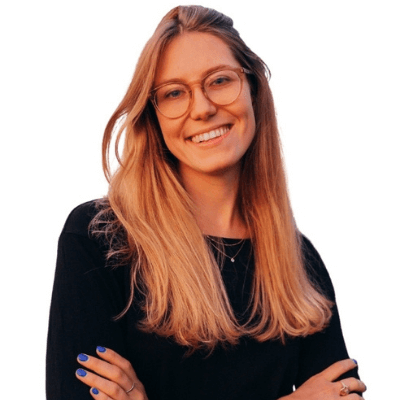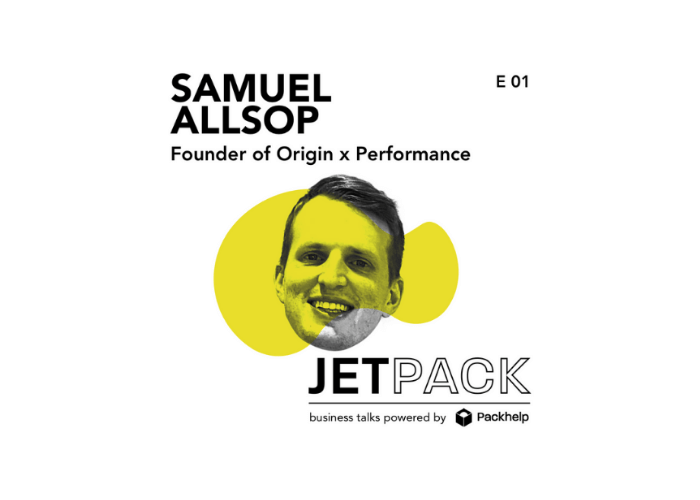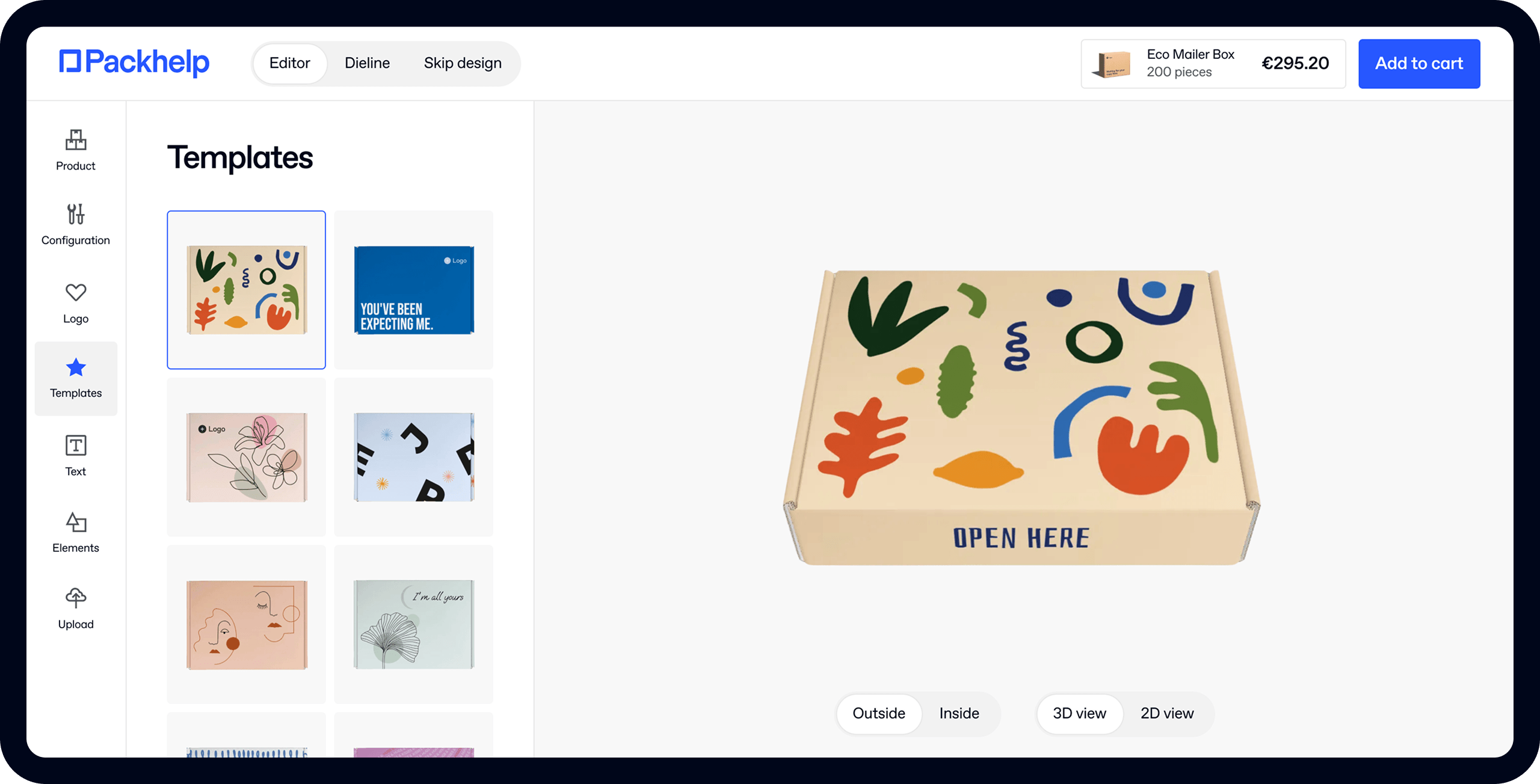Podcast: The Jetpack Episode 1 with Samuel Allsop, founder of Origin x Performance

- 200+ templates & patterns
- Real time 3D packaging preview
- Upload logo and choose brand colours

Subscribe now! Receive 15% discount.
Don’t miss out – get 15% off your first order when you join the newsletter. It’s fast, free, and kinda smart.
You're now subscribed!
In the first ever episode of The Jetpack, Kajetan Wyrzykowski spoke with Samuel Allsop, founder of sustainable sportswear brand Origin x Performance.
Listen to the full episode below.
If you’d like to have a sneak peek, take a look at the shortened version of the conversation.
Shortened transcription of The Jetpack Ep. #1 - Samuel Allsop from Origin x Performance
Kajetan Wyrzykowski: Samuel, I’m very happy to welcome you on the first episode of The Jetpack. Why don’t we start with a few words about yourself?
Samuel Allsop: Hey, I’m Sam. I started a sustainable sportswear brand called Origin x Performance. I launched in December last year. I did a Master’s at International Business, and I’ve always wanted to start my own business.
Kajetan Wyrzykowski: And in terms of your professional career, any previous experiences?
Samuel: So, I’ve owned a couple of small ventures, one in furniture recreation, but I’ve sold that off. I worked in insurance too, in sales, and I went back to university - wasn’t too sure what to do. Eventually, during that time, I finally decided that I wanted to own a brand. A sustainable brand, and leave my mark on the world. We’ve all taken a lot and now it's time to give back. I didn’t want to work for somebody else either, because I didn’t believe in their ethos, but now I own a sustainable brand. I also went meat-free, I don't use plastic, I plan on getting an electric car and do everything I can really “live” my brand.
Kajetan: I can feel that you’re authentic in all that. But we’ve started our conversation without saying what Origin x Performance exactly does. What do you sell, where do you sell, what kind of growth plan do you have?
Samuel: Origin x Performance is a sustainable activewear brand. It’s stuff you can wear in a gym, for sports, but we also make our clothing look more casually. All of our garments use sustainable fabrics, the packaging we use is all biodegradable and compostable, down to the string that we use to attach a tag to the piece of your clothing. We are plastic free, and we plant a tree for every garment sold. Sustainability means also having high labor standards. Origin x Performance works only with producers and suppliers who can comply with our high standards. Basically, we’re working every day to make Origin x Performance a more sustainable brand. One idea that we also have is that for every discount we do, we give the discounted percentage to charity.
In terms of our growth, over the next six to twelve months, we have quite big plans . We want to cement ourselves within the activewear environment, so we plan to roll out to quite a few high street shops - we’re looking for 25 by the end of the year. We’re keeping it local though, in the local gyms too.
Kajetan: It sounds exciting! And there’s definitely potential there, and that leads to my next question too. The first thing I had in mind when you told me about Origin x Performance is how crowded the clothing industry is. There’s a lot of brands popping out of nowhere, so how do you plan to manage this, and where is the space for Origin x Performance there?
Samuel: As you said, people are popping up every day with new brands, saying ‘This is our mission, this is our ethos, here’s what we’re gonna do - we’d love to have on board’. But the way we differentiate ourselves is the sustainability aspect. Many big brands - like Zara, Adidas or Nike - they say they’re gonna get sustainable but this year, then the date changes. Our business was always based around sustainability.

Kajetan: Do you think that small brands - such as Origin x Performance - should be sustainable from day one then?
Samuel: We’ve built this brand sustainability, and we’ve been telling our customers - ‘this is our mission, we believe in it.’ We are sustainable thanks to the fabrics we choose, our labor standards, basically everything we do. The things that some bigger brands may not understand, things that we already know, is that at the end of the day, business needs to make money - we understand our margins very well, because we started off as being sustainable. Others might not fully grasp the costs of turning sustainable, and doing so will surely cost a big chunk of the revenue.
Consumers don’t actually understand sustainability either. We’re trying to bring across this message that it costs us more to make the garment too. We charge similar prices to our competition, but due to labor standards and the materials we use, it costs us more to produce these garments.
Kajetan: You’ve mentioned that consumers have trouble understanding what sustainability is. A few years back, sustainability wasn’t even that popular. So how are you trying to educate your customers about this topic?
Samuel: We write blog articles, three or four different types. We focus on sport and gym; we focus on being healthy generally; about diet (we actually released an article about going meat-free); then blog articles about slow fashion; and finally about our producers. People who are new to the whole idea of sustainability might hopefully read it and think ‘God, I didn’t know that! I’ll start implementing that in my life’ - that is basically what we want.
Kajetan: You talked about the habits. Do you have any habits as an entrepreneur? Do you have any tip for our listeners?
Samuel: You know, we just started out, so one day I’ll be in marketing, next day I’m in sales. Being an entrepreneur is extremely rewarding, in a sense that I never really focus on one thing, I’m doing all these things from account management to sales and marketing.
If I had a piece of advice - it’s really fun, no day is the same. You could be doing something, and then you get an email and need to rush and focus on something. It’s definitely not a Monday-to-Friday, nine-to-five job. You know, the best advice is just do it. If you have got a passion, just do it.
Kajetan: It’s very true, a great piece of advice. While we’re talking about side businesses, do you think that if someone has an idea, they should go all in, quit their job and focus solely on that idea?
Samuel: If you’re a younger person, when you really have no commitments in life, just go ahead and do it. The worst that can happen is that you fail. And by failing, you learn a lot more.
In terms of going full-time… test out first. Then, if it’s successful, think if it’s worth going full-time. I was lucky enough to have some other skills - apart from business ones - like web development and web design. So I do small projects for other people. Origin x Performance is my baby, you know. In January, I made one sale, and I got pretty depressed. And in February, I’ve made 18. So, I think it’s important to surround yourself with positive people too.

Kajetan: What about feedback? Do you think that being open-minded towards feedback is essential too - especially in these beginnings?
Samuel: To a certain degree, yeah. You will always have these people, who will just say negative stuff, or do they want to actually help. I always want feedback, but when it’s just negativity, I don’t listen to it really.
Kajetan: When it comes to packaging -that’s how we got to know each other - it's also crucial to the Origin x Performance philosophy?
Samuel: There’s a lot of thought put into it. Back in 2019, when I was starting, I thought that I really want to have my own activewear brand. Then I decided to make a sustainable label, but what’s gonna make me stand out from the crowd? That’s when sustainability came to play. First were the fabrics - organic cotton, recycled polyester, and other materials form the ocean. But people were doing that already, so I thought - ‘What’s gonna make me stand out even more?’
So i decided to plant a tree. What’s next? I decided to focus on packaging, and being plastic-free as a whole business. I think that this is one of my main selling points - biodegradable, compostable packaging. I did a lot of research into plastic too, and even if you recycle it, up to seven times, it’s gonna eventually land in a landfill. So that’s just delaying the inevitable. Plastic can take hundreds of years to decompose. I haven’t got that much time, so I chose the Bio Poly Mailer from Packhelp. I’m quite pleased with it!
Kajetan: Since you’re British, I have to ask this question - Brexit. Do you think that this is a challenge, an opportunity for your brand?
Samuel: I honestly don’t know what’s gonna happen in a year. I’m neutral, but I don’t believe in Brexit. I disagree with the latest thing that emerge - the low-skilled workers coming from Europe. I think that any job is skilled, there are just different skills. It’s not an easy job out there.
The import tax, that’s what will have an impact. I believe we shouldn’t cut ourselves off from Europe. Europe is a massive trading partner, a lot of Europeans have skills that Brits don’t have - and vice versa. And this freedom of movement is fantastic. As a trading partner, it’s a massive market to tap into - the EU. It’s quite depressing for me to think that I might have to pay an additional import tax, due to the fact that I am working with suppliers form Latvia. So, in business terms, I’d say I’m against it.
Kajetan: It’s definitely a kind of restriction, so I assume this is a challenge for any British company, any other European too. While you were talking about it, I thought about another huge challenge - the coronavirus. This is also going to have an impact on the business side too?
Samuel: One thing that’s important for me is that this is why I chose suppliers from here, closer to me (and not Asia).
With the coronavirus, you have to expect anything to happen. And as a business owner, you need to be ready to adapt. Also, this is a chance for those who manufacture in Asia to bring their partners closer, and choose local partners. If this happens again, your profits can be hit massively - and the small businesses might be really suffering now. And if this situation continues, many will be out of business.
I also think that it's important to sit back, and admit - 'this has happened, I have no control over it whatsoever'.
Kajetan: I hope that Origin x Performance grows, and maybe I'll start being more fit! Thank you for the conversation Sam!
Samuel: You'd be my first customer from Poland! It’s been a pleasure, thank you so much.
Subscribe to the The Jetpack on Spotify - click here.




























